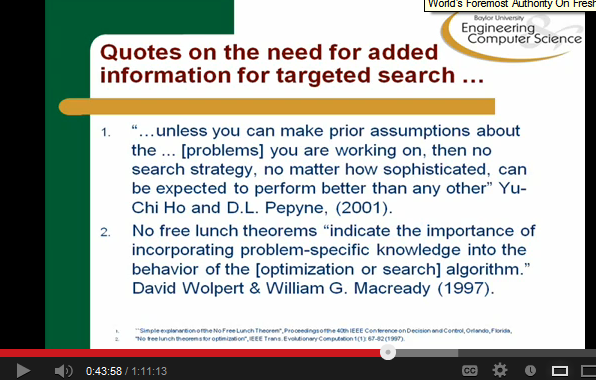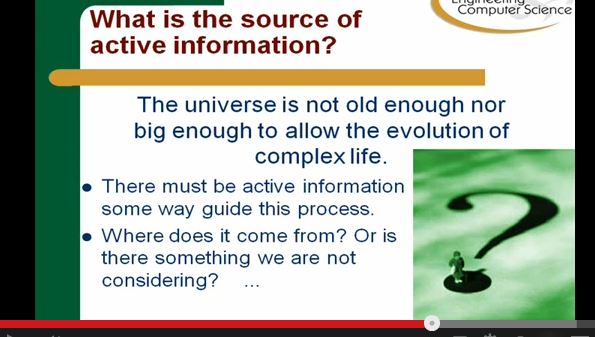As promised earlier today, here is the vid of Dr Marks on Information and search success:
[youtube d7seCcS_gPk]
This clip will be especially revealing:
So also will be this:
And now, the challenge is on the table — where are ever so many celebrated algorithms bringing info in to the search problem? (Hint: algorithms as a rule are designed.) END

